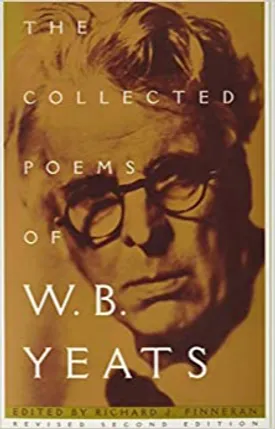W. B. Yeats
William Butler Yeats (1865-1939) is one of the greatest poets in the English language and is widely thought to be the most influential poet of the 20th century. Born in Ireland, Yeats grew up in a time of turmoil, with his country caught up in the struggle for political and social freedom. This struggle was integral to the development of Yeats’s thinking, particularly his idea of the human spirit struggling against the weight of the material world.
Yeats was introduced to poetry by his mother, and from an early age he was well-read and aware of the important social questions of the day. Combining his liberal politics with his intellectual sensibilities, Yeats began writing poetry from a young age and exploring the idea of a dreamlike unity between the material and spiritual worlds.
Yeats’s poetry displays a deep engagement with Irish mythology and folklore; much of his writing explores the divine in everyday human experience. His symbols and themes touch on the eternal, the divine and the mythical. Yeats’s powerful poetic imagery allows him to explore themes such as the power of love and the limitations of mortality.
In his early years, Yeats mainly wrote lyrical poems. In addition to exploring spiritual and metaphysical themes, these works often incorporated the political realities of the time. While much of Yeats’s work reflects his involvement in literature, drama and politics, his later poetry is more focused on the personal and spiritual elements of life.
Yeats was highly influential in the development of modernism and was a major influence on various movements in the arts and literature. He was also an important figure in the Irish Literary Renaissance, a period when Irish culture and identity took an important place in the world stage. Yeats’s work found its way into all walks of life, and his poetic voice is still heard in contemporary society.
Yeats was a major figure in the Irish Literary Revival and the development of modernism, two immensely important movements in literature and the arts. He wrote prolifically on various themes, ranging from ancient Irish themes to contemporary issues. His works continue to be an inspiration to readers and writers alike, and his legacy has remained powerful in this modern age.

